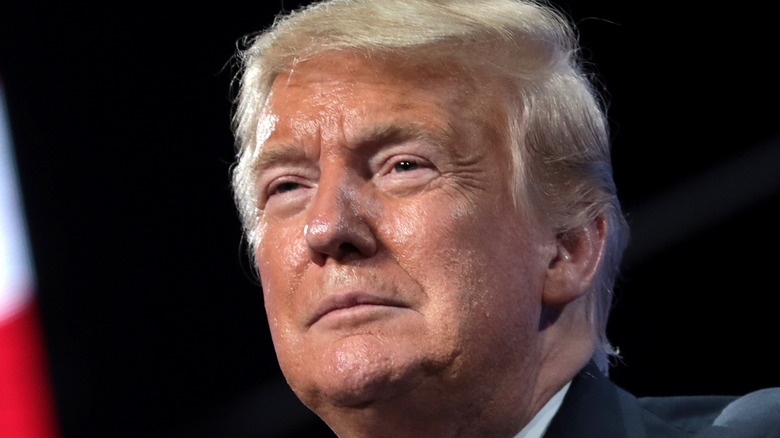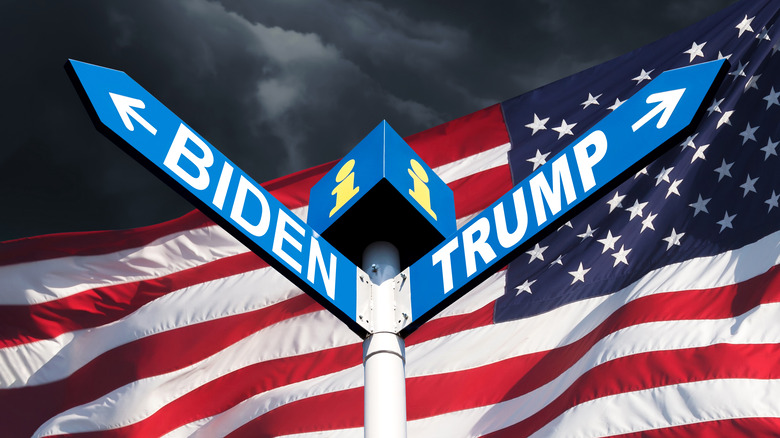Here's How Much Trump Has Spent On Facebook Ads
Social media platforms have the ability to reaches millions of people online, and with Facebook being the biggest of them all, according to Search Engine Journal, political candidates and special interest groups have spent millions of dollars advertising on the app. Over the years, Facebook has endured some public scrutiny for saying it won't fact-check political candidates' ads, which is another reason why it's become the perfect marketing channel for those trying to influence policy or sway public opinion. One politician who took full advantage of the platform's liberties and reach was then-President Donald Trump.
In 2018, Facebook started to keep track and disclose which pages pay for political ads. According to Business Insider, between May 2018 and November 2019, President Trump spent more than $21.5 million on 286,476 ads on Facebook. Trump was not only the biggest spender on Facebook ads, he also spent more than Facebook itself, who came in just behind by spending just short of $18 million. Trump was allowed to keep his ads on the platform, whether they were true or false; however, any third party supporting political candidates were subject to having their ads removed.
Trump and Biden set spending records for Facebook ads in the 2020 presidential election
The amount of money spent leading up the presidential increased even more. Between January 2019 and October 24, 2020, Trump spent around $107 million on Facebook ads alone, per Eyewitness News. Biden's campaign came in second by spending $94 million. Both candidates spent more solely on Facebook ads than Trump and Hillary Clinton did collectively during the 2016 election — $81 million. USC Annenberg Digital Social Media Professor Karen North mentioned the effects digital ads have on their demographics: "No one in the digital world is surprised to see increasing focus going to digital ads," said North. "Unlike traditional media, digital allows you to target audiences directly. The real, huge change with social media versus traditional media is that it makes us feel like we have a personal connection with somebody."
And even if the candidate or special interest you support runs ads you tend to agree with, it's best to think twice about what you're reading. "People unfortunately don't realize how vulnerable they are to being manipulated," North said. "It's very hard to think about a time when we come back to people (who) hear the news, think about the news, and talk to people, instead of finding out about the news from someone who is an opinion leader first. And so if that is our future, we need to educate people that the news you are reading may be an opinion and not news."

